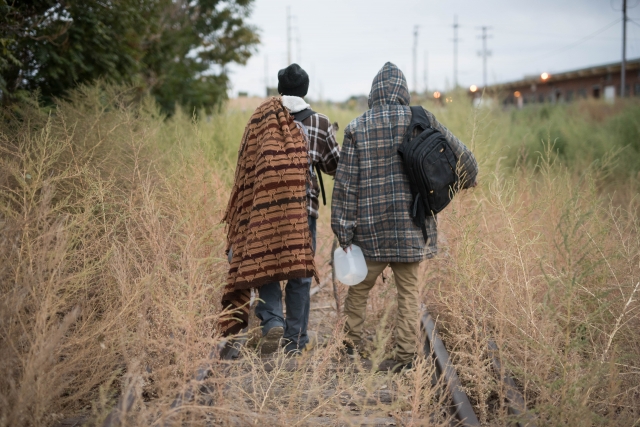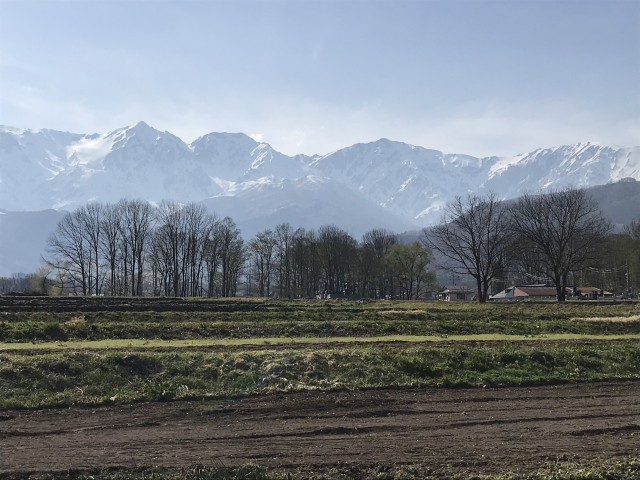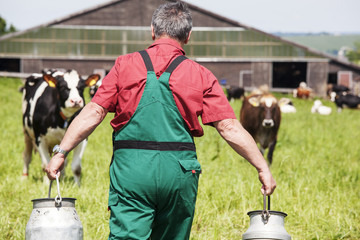Publications

Depressive symptoms, suicide ideation and attempts are about twice as common among those who perceive community gender norms as restrictive
We examined the impact of perceived community gender norms, such as “You are a man/woman, you shouldn’t/shouldn’t do XXX”, on the mental health of older people. We analyzed cross-sectional data from 25,937 older adults. The results showed that men who perceived the gender norms of the community they lived in as restrictive were 1.9 times more likely to have depressive symptoms, 2.0 times more likely to have suicidal thoughts and 2.2 times more likely to have attempted suicide. Similarly, women were 1.8 times more likely to have depressive symptoms, 2.1 times more likely to have suicidal thoughts and 2.6 times more likely to have attempted suicide. Furthermore, among those who did not hold conventional gender role attitudes such as “it is a man’s role to work outside the home” and “it is a woman’s role to raise children and look after the home” there was a significant association between restrictive gender norms in the community and poorer mental health. It is possible that those who perceive the atmosphere in their community as being rigid about gender roles and think that it does not allow for diversity are less likely to seek help in times of need, which in turn has a negative impact on their mental health.

Does increased migration affect the rural–urban divide in suicide? A register-based repeated cohort study in Sweden from 1991 to 2015
In Sweden, where immigration has been increasing, dispersion policies have directed refugees to live in rural areas to prevent their concentration in urban areas, and in order to counter the effects of economic decline and population loss in rural areas. Rural contextual factors have been suggested to be related to suicide rates, with a stronger impact among foreign-born individuals. We therefore focused on the long-term trends in suicide mortality stratified by country of birth and rurality. We designed a series of repeated cohort analyses with 5-year follow-ups, using Swedish national register data between 1991 and 2015. Results from a three-level Poisson regression analysis showed clearly different trends in suicide mortality by country of birth, rurality and its unit of aggregation and gender.

Differences in depressive symptoms by rurality in Japan: A cross-sectional multilevel study using different aggregation units of municipalities and neighborhoods (JAGES)
Urbanization may affect mental health differentially depending on the regional context. A focus on geographic units to evaluate rurality could improve our understanding of the mechanisms that link the characteristics of residence and depression. Our study was designed to address multiple layers of the rural environment. To elucidate the relationship between depression and rurality, we used population density as a measure of municipality-level rurality, and the time it took to travel to a densely-inhabited district as a measure of neighborhood-level rurality (i.e., a smaller unit within a municipality) in Japan. We also examined how the association between rurality and depression can be differentially explained by community social capital according to geographical unit. This cross-sectional study used data from the Japan Gerontological Evaluation Study and included 144,822 individuals from 937 neighborhoods across 39 municipalities. Results from a three-level Poisson regression analysis showed that the association between rurality and depression varies according to the geographic unit analyzed, and different components of community social capital may explain the variation.

Neighborhood farm density, types of agriculture, and depressive symptoms among older farmers
Against a backdrop of common structural changes occurring worldwide in the agricultural sector including increasing global competition, a decline in the number of farms, and increasing farm size farmers’ mental health is increasingly becoming a global cause for concern. In Japan, farming is characterized by both a declining and aging farming population. Farmers may suffer from serious health issues and social isolation that might be attributable to a variety of factors including the neighborhood environment. Despite this, until now there has been little research on the mental health of farmers in Japan and the factors associated with it. The aim of this study was to examine whether neighborhood farm density and the type of agriculture are associated with the mental health of farmers in Japan. More specifically, we used data from the Japan Gerontological Evaluation Study to evaluate the cross-level interaction for depressive symptoms between farm density at the neighborhood level and occupation. Results from a Poisson regression analysis showed clear differences in depressive risk among farmers by neighborhood farm density.

Rural life and suicide: does the effect of the community context vary by country of birth?
International migration is a global phenomenon, and has drawn extensive debate even in inclusive welfare states like Sweden. Immigrants may suffer from serious health issues, attributable to discrimination due to national immigration policies and negative social norms for immigrants in certain residential areas, and the impacts of this discrimination may vary across the places where they live. We therefore focused on rurality as a potential areal context strongly affecting the mental health of immigrants; and, using whole Swedish registry data, we evaluated the effect of its interaction with immigrants’ countries of birth on suicide risk. We found highly interesting results, showing clear differences in suicide risk by gender, areal size when evaluating rurality, and country of birth.

Disparities in infant mortality tend to widen between household occupations
This study focuses on the relationship between occupation, environment, and supports for perinatal parents given the recent rise in inter-prefectural inequality in the under-5 mortality rate in Japan since the 2000s. Using national vital statistics by household occupation between 1999 and 2017, we showed the existence and increasing time trend of inter-occupational inequality in infant mortality. Furthermore, the inequality among household occupation was different according to the regional characteristics. Our findings suggest that, even if Japan has the lowest infant mortality rate in the world for a long time, certain occupations and unemployed increase the risk of infant mortality.
Most viewed in the Journal of Epidemiology (2 December 2022). It got the highest number of views in J-Stage in the past month. (Twitter of JE)

High suicide rates in regions with high dairy/livestock output
This study builds upon our current knowledge of suicide rates in rural areas by examining possible correlations with the type of agriculture that predominates in each rural area. We have analyzed specific factors that may play a role in the heightened suicide risk in Japan’s rural and specifically agricultural municipalities, allowing researchers and policymakers alike to develop new insights into this phenomenon and potentially develop new interventions to more effectively target at-risk individuals based on compositional and contextual factors.
TOP DOWNLOADED PAPER 2018-2019 in Suicide and Life-Threatening Behavior (30 April, 2020). Among work published between January 2018 and December 2019, this paper received some of the most downloads in the 12 months following online publication.
TOP CITED ARTICLE 2020-2021 in Suicide and Life-Threatening Behavior (1 April, 2022). A top cited article published between 1 Jan 2020-31 Dec 2021.
Doctoral Dissertation
Mariko Kanamori. (2022). The impact of rural context on suicide mortality and its potential mechanisms: A Swedish registry based multilevel cohort study focusing on country of birth. Doctoral dissertation in Medicine. The University of Tokyo. Tokyo. 162 pages. Available at Reserchgate or UTokyo Repository
Peer-Reviewed Publications
- Yuki Otani, Mariko Kanamori, Hiromi Kato, Cathy M. Dwyer. (2025). Cross-cultural variation in understanding of animal welfare principles and animal management practices among veterinary and animal welfare professionals in the UK and Japan. Animal Welfare, 34:e55. https://doi.org/10.1017/awf.2025.10026
- Kuan-Ju Huang, Yukiko Uchida, Kosuke Takemura, Shintaro Fukushima, Jun Aida, Masamichi Hanazato, Mariko Kanamori. (2025). Paradoxical effects of community social cohesion on mental health and help-seeking among older adults: The role of reputation concern and socioeconomic status, Social Science & Medicine, 380: 118234. https://doi.org/10.1016/j.socscimed.2025.118234
- Yura K Ko, Jesse Gitaka, Bernard N Kanoi, Billy E Ngasala, Mariko Kanamori, Wataru Kagaya, Akira Kaneko. (2025). Previously undiagnosed disease “X” in the Democratic Republic of the Congo: malaria’s potential role in the outbreak, Open Forum Infectious Diseases, ofaf240, https://doi.org/10.1093/ofid/ofaf240
- Yura K Ko, Wataru Kagaya, Protus Omondi, Kelvin B Musyoka, Takatsugu Okai, Chim W Chan, James Kongere, Victor Opiyo, Jared Oginga, Samuel Mungai, Bernard N Kanoi, Mariko Kanamori, Daisuke Yoneoka, Kenya National Bureau of Statistics (KNBS), Kibor K Keitany, Elijah Songok, Gordon Odhiambo Okomo, Noboru Minakawa, Jesse Gitaka, Akira Kaneko. (2025). Evaluation of the protective efficacy of OlysetPlus ceiling nets for reduction of malaria incidence in children in Homa Bay County, Kenya: a cluster-randomised controlled study protocol. BMJ Open 2025;15:e087832. https://doi.org/10.1136/bmjopen-2024-087832
- Yura K Ko, Wataru Kagaya, Chim W Chan, Mariko Kanamori, Samuel M Mbugua, Alex K Rotich, Bernard N Kanoi, Mtakai Ngara, Jesse Gitaka, Akira Kaneko. (2024). Unraveling the ‘community effects’ of interventions against malaria endemicity: a systematic scoping review: BMJ Public Health 2024;2:e001557. https://doi.org/10.1136/bmjph-2024-001557
- Yukiko Uchida, Mariko Kanamori, Shintaro Fukushima, Kosuke Takemura. (2023). Interdependent culture and older adults’ well-being: Health and psychological happiness in Japanese communities. Current Opinion in Psychology.
https://doi.org/10.1016/j.copsyc.2023.101729 - Mariko Kanamori, Andrew Stickley, Kosuke Takemura, Yumiko Kobayashi, Mayumi Oka, Toshiyuki Ojima, Katsunori Kondo, Naoki Kondo. (2023). Community gender norms, mental health and suicide ideation and attempts among older Japanese adults: a cross-sectional study. International Psychogeriatrics, 1-11. https://doi.org/10.1017/S104161022300087X
- Yoko Matsuoka, Maho Haseda, Mariko Kanamori, Koryu Sato, Airi Amemiya, Toshiyuki Ojima, Daisuke Takagi, Masamichi Hanazato, Naoki Kondo. (2023). Does disaster-related relocation impact mental health via changes in group participation among older adults? Causal mediation analysis of a pre-post disaster study of the 2016 Kumamoto earthquake. BMC Public Health 23, 1982 (2023). https://doi.org/10.1186/s12889-023-16877-0
- Yuqi Chen, Kosuke Miyazono, Yayoi Otsuka, Mariko Kanamori, Aozora Yamashita, Nobuto Arashiki, Takehisa Matsumoto, Kensuke Takada, Kota Sato, Narla Mohandas, Mutsumi Inaba. (2023). Membrane skeleton hyperstability due to a novel alternatively spliced 4.1R can account for ellipsoidal camelid red cells with decreased deformability. Journal of Biological Chemistry, Volume 0, Issue 0, 102877. https://doi.org/10.1016/j.jbc.2023.102877
- Andrew Stickley, Naoki Kondo, Yosuke Inoue, Mariko Kanamori, Shiho Kino, Yuki Arakawa, Martin McKee. (2022). Worry about crime and loneliness in nine countries of the former Soviet Union. SSM – Population Health, 101316. https://doi.org/10.1016/j.ssmph.2022.101316
- Kota Ninomiya, Mariko Kanamori, Naomi Ikeda, Kazuaki Jindai, Yura K Ko, Kanako Otani, Yuki Furuse, Hiroki Akaba, Reiko Miyahara, Mayuko Saito, Hitoshi Oshitani. (2022). Integration of publicly available case-based data for real-time coronavirus disease 2019 risk assessment, Japan. Western Pacific Surveillance and Response, 13(1), 1–6. https://doi.org/10.5365/wpsar.2022.13.1.889
- Marisa Nishio, Maho Haseda, Mariko Kanamori, Yuki Arakawa, Naoki Kondo. (2022). The concept of social determinants of health in health promotion policies in Thailand, Sweden, England, USA, and Japan: A narrative review [Japanese language]. Japanese Journal of Public Health, 69(5), 338–356. https://doi.org/10.11236/jph.21-105
- Naomi Morita, Mariko Kanamori, Masahiro Nochi, Naoki Kondo. (2021). A mixed methods study on specifying the inhibitory factors to access medical services and effective support for foreign residents living in Japan [Japanese language]. Journal of International Health, 36(3): 107–121. https://doi.org/10.11197/jaih.36.107
- Mariko Kanamori, Masamichi Hanazato, Daisuke Takagi, Katsunori Kondo, Toshiyuki Ojima, Airi Amemiya, Naoki Kondo. (2021). Differences in depressive symptoms by rurality in Japan: A cross-sectional multilevel study using different aggregation units of municipalities and neighborhoods (JAGES). International Journal of Health Geographics, 20: 42. https://doi.org/10.1186/s12942-021-00296-8
- Mariko Kanamori, Naoki Kondo, Sol P. Juárez, Agneta Cederström, Andrew Stickley, Mikael Rostila. (2022). Does increased migration affect the rural–urban divide in suicide? A register-based repeated cohort study in Sweden from 1991 to 2015. Population, Space and Place, 28: e2503. https://doi.org/10.1002/psp.2503
- Mariko Kanamori, Masamichi Hanazato, Katsunori Kondo, Andrew Stickley, Naoki Kondo. (2021). Neighborhood farm density, types of agriculture, and depressive symptoms among older farmers: a cross-sectional study. BMC Public Health, 21: 440. https://doi.org/10.1186/s12889-021-10469-6
- Mariko Kanamori, Naoki Kondo, Sol Juarez, Andrea Dunlavy, Agneta Cederström, Mikael Rostila. (2020). Rural life and suicide: does the effect of the community context vary by country of birth? A Swedish registry-based multilevel cohort study. Social Science & Medicine, 253: 112958. https://doi.org/10.1016/j.socscimed.2020.112958
- Koryu Sato, Airi Amemiya, Maho Haseda, Daisuke Takagi, Mariko Kanamori, Katsunori Kondo, Naoki Kondo. (2020). Post-disaster Changes in Social Capital and Mental Health: A Natural Experiment from the 2016 Kumamoto Earthquake. American Journal of Epidemiology, 189(9): 910–921. https://doi.org/10.1093/aje/kwaa041
- Mariko Kanamori, Naoki Kondo, Yasuhide Nakamura. (2021). Infant mortality rates for farming and unemployed households in the Japanese prefectures: An ecological time trend analysis, 1999-2017. Journal of Epidemiology, 31: 43–51. https://doi.org/10.2188/jea.JE20190090
- Mariko Kanamori, Naoki Kondo. (2020). Suicide and Types of Agriculture: A Time-Series Analysis in Japan. Suicide and Life-Threatening Behavior, 50: 122–137. https://doi.org/10.1111/sltb.12559
Book
- Tami Saito, Xueying Jin, Taiji Noguchi, Ayane Komatsu, Mariko Kanamori. (2023) Inequities by sex and gender in access to, and affordability of, long-term care: modifiable factors. Geneva: World Health Organization.
https://iris.who.int/bitstream/handle/10665/373610/9789240077874-eng.pdf
Presentations
International Conference and Workshop Presentations
- Mariko Kanamori. Community gender norms and mental health among older Japanese adults. The 12th International Society of Social Capital Research meeting at Menorca, Oral, 30 June 2023
- Mariko Kanamori. Care access barriers in sexual and gender minority care recipients and potential interventions. (Symposium: Gender disparities in long-term care and its modifiable factors). IAGG-AOR2023, Yokohama. 12 – 14 June 2023
- Mariko Kanamori. Co-creation of individual and collective well-being: beyond one-size-fits-all well-being & beyond human centralization. The HiSS workshop. 3 – 5 May 2023. KTH Royal Institute of Technology. Invited Speaker.
- Mariko Kanamori. Influence of human-animal relationship on public health ー Perspectives on social epidemiology research ー. The 3rd Workshop on “Food Life History of the North”. 30 September 2022. Research Institute for Humanity and Nature. Invited Speaker.
- Mariko Kanamori, Naoki Kondo. Suicide and Types of Agriculture: A Time-Series Analysis in Japan. One Welfare Science slaM (OWSM) Sessions, One Welfare World Conference, online, 15 – 16 September 2021. (Video)
- Mariko Kanamori, Mayumi Oka, Kosuke Takemura, Yumiko Kobayashi, Katsunori Kondo, Naoki Kondo. Gender norms and mental health among older adults in Japan: A JAGES cross-sectional study. Society for Epidemiologic Research 2021 Meeting, San Diego (online), June 23 – 25, 2021.
- Mariko Kanamori, Naoki Kondo, Sol Juarez, Andrea Dunlavy, Agneta Cederström, Mikael Rostila. Rural life and suicide: do immigrants suffer or benefit from their community contexts? A Swedish registry-based multilevel cohort study. Understanding Inequalities Conference 2020, Edinburgh, Oral, June 2020.
- Mariko Kanamori, Naoki Kondo, Sol Juarez, Andrea Dunlavy, Agneta Cederström, Mikael Rostila. The urban-rural inequalities of suicide according to country of birth: A national registry-based cohort study using a three-level model in Sweden. The 11th International Society of Social Capital Research meeting at Edinburgh, Oral, June 2019.
Domestic Conference Presentations
- Mariko Kanamori. Hunting and animal welfare in Sweden: an example of hunter ethics. Symposium: Killing and Protecting wildlife: considering hunting and animal ethics, Annual Meeting of Japanese Society for the Study of Human Animal Relations. Invited Speaker. Yokohama&online, March 2024.
- Mariko Kanamori. Community gender norms and mental health among older adults. The 18th Annual Meeting of The Society for Applied Gerontology. Invited Speaker. Osaka&online, October 2023.
- Mariko Kanamori. Care access barriers in sexual and gender minority care recipients and potential interventions. The 3rd conference of the Japan Association of Social Relations. Speaker at symposium. Chiba&online, March 2023.
- Mariko Kanamori, Naoki Kondo, Sol Juarez, Andrea Dunlavy, Agneta Cederström, Mikael Rostila. “Rural life and suicide: does the effect of the community context vary by country of birth?” The 33rd Annual Scientific Meeting of the Japan Epidemiological Association. Oral (on-site English session, O-40), February 2023.
- Mariko Kanamori. Cattle’s health to people’s health: the relationship between society and health. Veterinary Academic Annual Meeting 2022 by Japan Veterinary Medical Association. Invited presentation. January 2022.
- Mariko Kanamori, Mayumi Oka, Kosuke Takemura, Yumiko Kobayashi, Katsunori Kondo, Naoki Kondo. Gender norms and mental health: A JAGES 2019 cross-sectional study. The 80th Annual Meeting of Japanese Society of Public Health. Online. Oral presentation. December 2021.
- Mariko Kanamori, Masamichi Hanazato, Daisuke Takagi, Katsunori Kondo, Toshiyuki Ojima, Naoki Kondo. Differences in depressive symptoms between urban and rural areas: municipality-level and neighborhood-level JAGES. The 79th Annual Meeting of Japanese Society of Public Health. Online. Oral presentation. October 2020.
- Mariko Kanamori, Masamichi Hanazato, Katsunori Kondo, Naoki Kondo. Examining the cross-level interaction between the type of farming that thrives in the region and farmer depression: cross-sectional study using JAGES data. The 30th Annual Scientific Meeting of the Japan Epidemiological Association. Kyoto. Poster presentation. February 2020.
- Mariko Kanamori, Naoki Kondo. Regional factors related to suicide in rural areas: focusing on the types of agriculture that thrive in the region JAGES. The 29th Annual Scientific Meeting of the Japan Epidemiological Association. Tokyo. Poster presentation. January 2020.
- Mariko Kanamori, Naoki Kondo, Yasuhide Nakamura. Infant mortality disparities between household occupations. The 77th Annual Meeting of Japanese Society of Public Health. Tokyo. Oral presentation. October 2018.
- Mariko Kanamori, Naoki Kondo. A time-series ecological study of suicide risk in agricultural areas by type of agriculture (crops and husbandry). The 37th Annual Meeting of Japanese Society for Social Psychiatry. Kyoto. Oral presentation. March 2018.
Ongoing research project
Psychological effects of human-animal relationships on local communities: An empirical study from the perspective of social capital (Principal Investigator)
Grant-in-Aid for JSPS, 2022 Apr – 2026 Jan
The Russian Invasion of Ukraine and Mental Health in the Swedish population: How is the health of individuals remotely distanced from the war affected? (Main applicant)
JSPS Overseas Research Fellowships, 2026 Feb – 2028 Jan
Participating projects
- Japan Gerontological Evaluation Study (JAGES)
- Studies of Migration and Social Determinants of Health (SMASH)
- JST-Mirai Program: Co-creation of individual and collective well-being: Measuring the states of spaces and communities to support individuals’ optimization
- Research Institute for Humanity and Nature, Global Environmental Culture Program: Coproduction Research with Local Practice and Science for Sustainable and Fair Hunting of Forest Wildlife
- Science and Technology Research Partnership for Sustainable Development (SATREPS): Interdisciplinary research for an integrated community-directed strategy to eliminate malaria in tropical Africa
- Japan Society for the Promotion of Science Grants-in-Aid Scientific Research (B): The coexistence of humans and wild animals from the perspective of hunting and animal ethics: Case studies from Japan, Africa and Nordic countries
